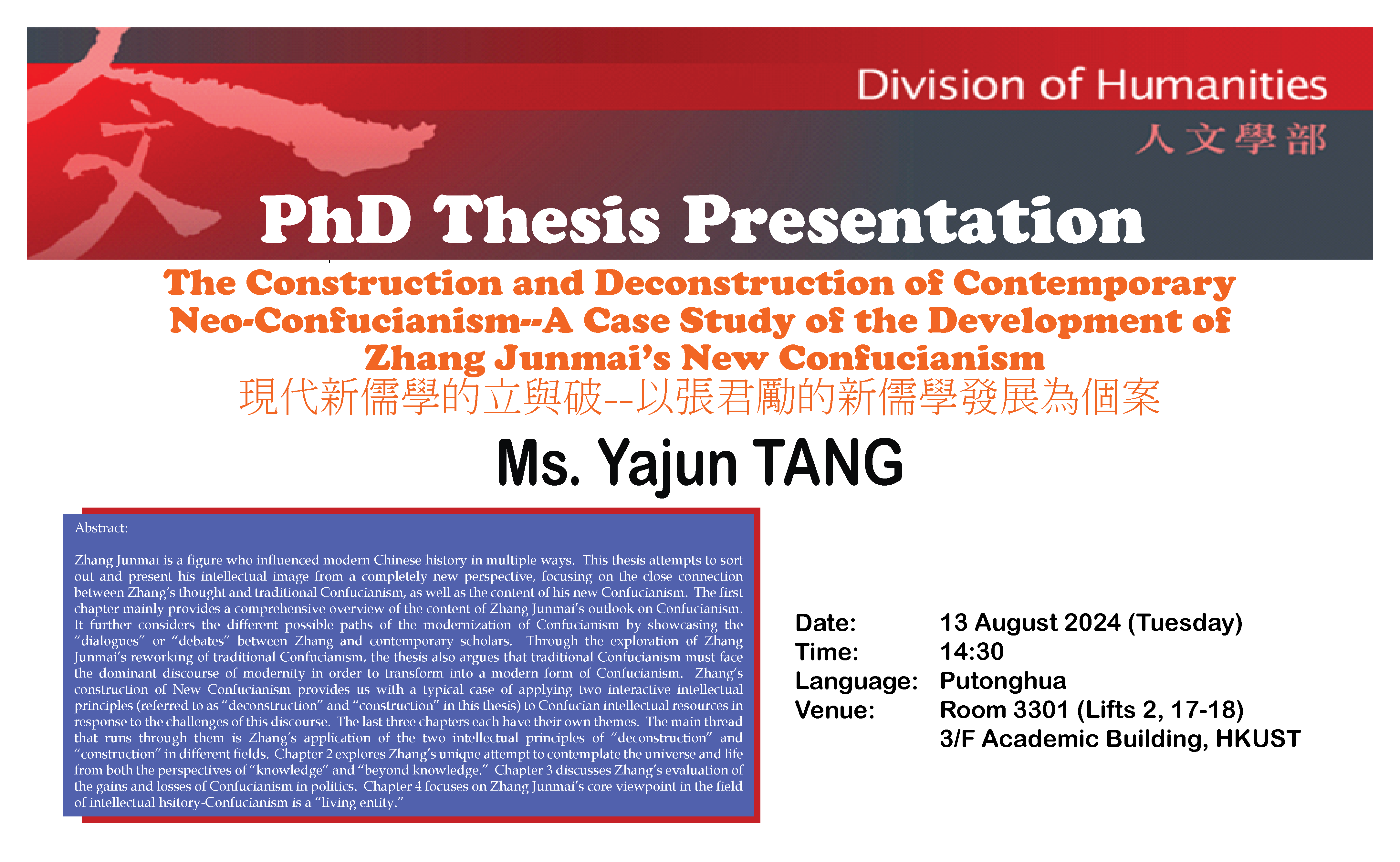Abstract
Zhang Junmai is a figure who influenced modern Chinese history in multiple ways. This thesis attempts to sort out and present his intellectual image from a completely new perspective, focusing on the close connection between Zhang’s thought and traditional Confucianism, as well as the content of his new Confucianism. The first chapter mainly provides a comprehensive overview of the content of Zhang Junmai’s outlook on Confucianism. It further considers the different possible paths of the modernization of Confucianism by showcasing the “dialogues” or “debates” between Zhang and contemporary scholars. Through the exploration of Zhang Junmai’s reworking of traditional Confucianism, the thesis also argues that traditional Confucianism must face the dominant discourse of modernity in order to transform into a modern form of Confucianism. Zhang’s construction of New Confucianism provides us with a typical case of applying two interactive intellectual principles (referred to as “deconstruction” and “construction” in this thesis) to Confucian intellectual resources in response to the challenges of this discourse. The last three chapters each have their own themes. The main thread that runs through them is Zhang’s application of the two intellectual principles of “deconstruction” and “construction” in different fields. Chapter 2 explores Zhang’s unique attempt to contemplate the universe and life from both the perspectives of “knowledge” and “beyond knowledge.” Chapter 3 discusses Zhang’s evaluation of the gains and losses of Confucianism in politics. Chapter 4 focuses on Zhang Junmai’s core viewpoint in the field of intellectual history—Confucianism is a “living entity.”
